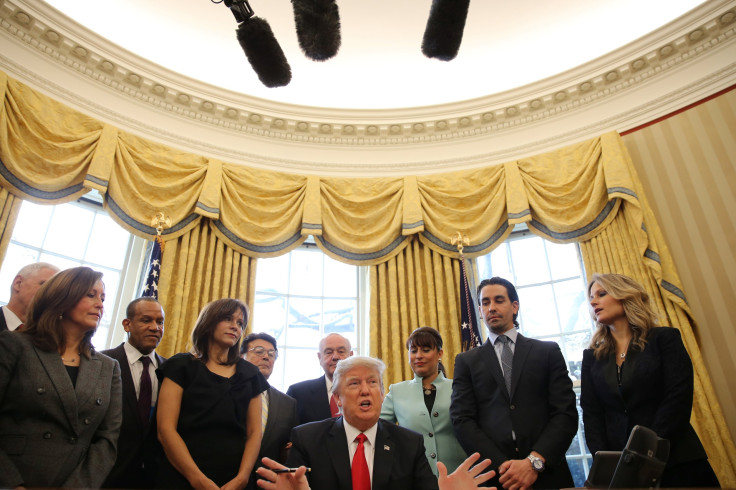Will Trump Start A Recession? President Plans To Roll Back Dodd-Frank, DOL Fiduciary Rule With Help From Big Bank CEOs

President Donald Trump’s newest executive actions will slash the financial reforms created in response to the Great Recession as a way to prevent recent history from repeating itself, the Wall Street Journal reported early Friday morning.
The 2010 Dodd-Frank Wall Street Reform and Consumer Protection Act—which boosted monitoring of banks once labeled “too big to fail,” sought to keep predatory lending in check and increased the level of reserves banks keep on hand in case of failure—is in the crosshairs, as is a Department of Labor rule requiring financial advisers to put their clients’ interests above their own.
“Americans are going to have better choices and Americans ae going to have better products, because we’re not going to burden the banks with literally hundreds of billions of dollars of regulatory costs every year,” Gary Cohn, a former executive at Goldman Sachs Group Inc. and Trump’s current White House Economic Council Director, told the Journal. “The banks are going to be able to price product more efficiently and more effectively to customers.”
The order will not only direct the Treasury secretary to propose ways to rewrite the rule, but will discard the so-called “fiduciary rule,” a law forcing handlers of people’s retirement funds and other assets—including those who receive commission—to put their customers’ interests first and was set to go into effect in April, according to the Journal.
The order was slated for announcement soon after Trump’s morning meeting with a litany of CEOs, including Jamie Dimon of JPMorgan & Chase Co. and Stephen Schwarzman of Blackstone Group LLP.
JPMorgan Chase is widely known for its role in the lead-up to and the aftermath of the 2008 crisis. It swallowed up the failed investment bank Bear Stearns with the help of the Federal Reserve in March 2008, received a $25 billion bailout from the Treasury Department later that year and paid the Justice Department a record settlement of $13 billion in 2013 over its sale of faulty mortgage-backed securities.
Blackstone, a private equity and asset management firm that went public around the time of the crisis, has a history of helping banks sidestep regulatory measures at home and abroad. In December, after he was tapped to advise Trump on financial policy, Schwarzman voiced his excitement for a “very substantial reversal of regulations of all types.”
© Copyright IBTimes 2025. All rights reserved.






















